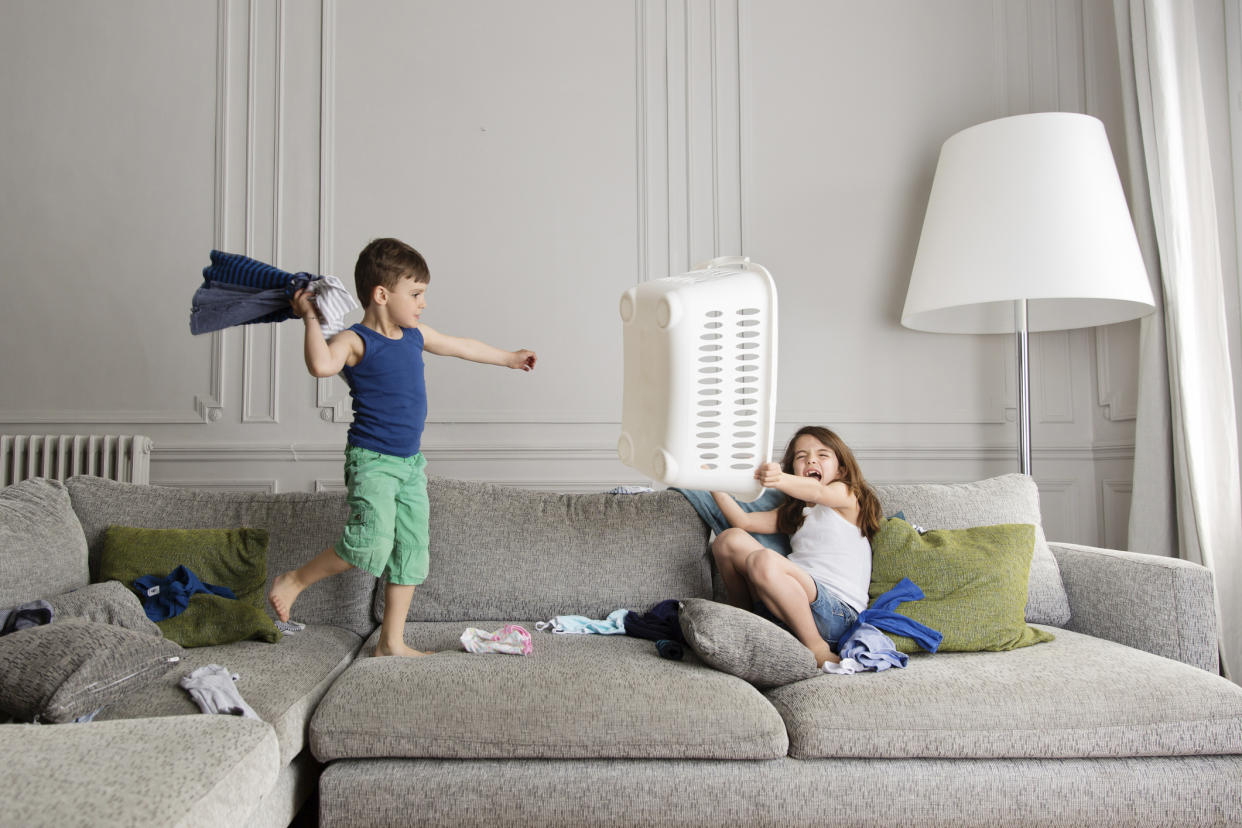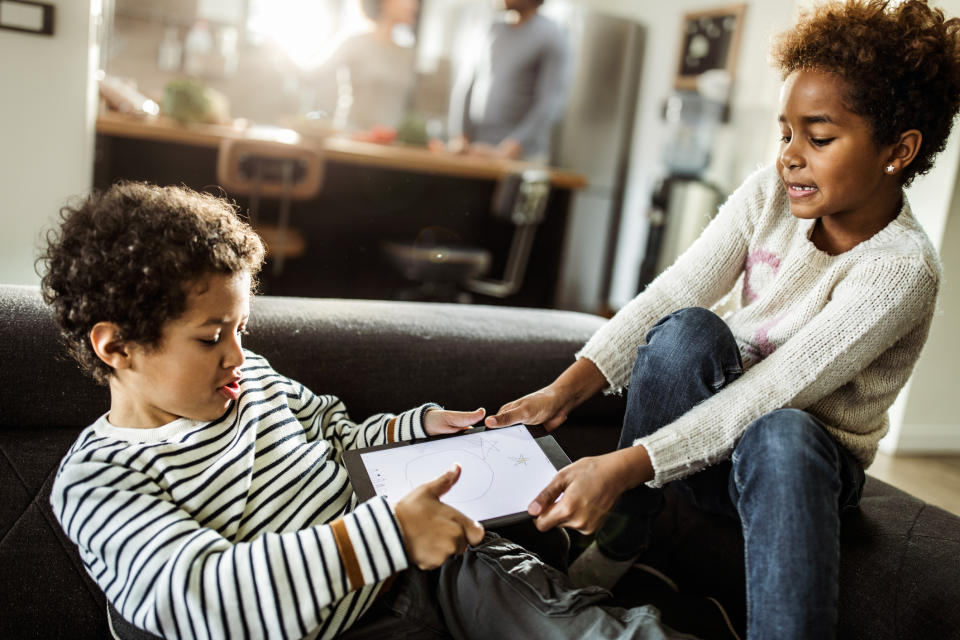Siblings fighting more in lockdown? Here's what parents can do about it

For many parents lockdown has been a fractious period. Having to stay inside with your kids for an indefinite amount of time due to a global pandemic is stressful enough. But it’s even worse when said kids Can’t Stop Fighting.
While it is somewhat understandable that children are taking their frustration at being cooped up out on their siblings, the constant bickering and not being able to escape it is leaving everyone feeling frazzled.
Trying to carry out a zoom work call while your tween and toddler trade insults is enough to tip the calmest of parents over the edge.
“Arguments and disagreements happen more when you're spending more time with someone - part of it is a simple matter of opportunity,” explains psychologist Dr Amanda Gummer, founder of Dr Gummer’s Good Play Guide and the Play At Home Fest.
“They can feel more intense and escalate more quickly as there are limited options for diffusing the conflict,” she continues.
“Increasing levels of stress and anxiety within the family can also make people less tolerant and quicker to snap - whether that’s the children feeling worried or them picking up on parental anxieties.”
Read more: How to help children get used to wearing a face mask
While some schools in England have re-opened to certain year groups, for some of those who remain at home, lockdown remains a sibling battle ground.
And all this fighting can have a knock-on effect on the health and wellbeing of frazzled parents already trying to manage a house, home-schooling and their own anxieties over coronavirus.
“Parents’ often find it stressful when children fight - especially as the opportunities to ignore it by going outside or taking one of them out with you to give them space from each other are limited,” Dr Gummer explains.
“It can add to stress and anxiety that may already be heightened and make it parents less inclined to think of fun family activities to do (why invite the conflict) but this can actually have the opposite effect.”

Read more: How coronavirus measures may be affecting children's mental health
So what can parents do if they can’t cope with the bickering any more?
Know when to step in
According to Dr Gummer a limited amount of mild conflict is no bad thing - and as there is nowhere to go, there is a lot of incentive to resolve the conflict and this teaches children a valuable skill.
“This is fine as long as the conflicts are generally fairly even,” she explains. “However, if there's always the same winner, it can damage the other child/children’s self esteem and possibly lead to avoidance behaviour where children act in ways to not provoke an argument or fight and this, if it is not addressed, can have longer-term negative impact on their mental health.”
Don't jump in too quickly
Tempting as it may be to break up a squabble over who ate the last strawberry yoghurt, Dr Gummer suggests giving children a chance to resolve the conflict themselves before discussing with them afterwards.
“Agree strategies on how to avoid it in future,” she adds. “Make sure you listen to both/all sides.”
Show them the power of being nice to each other
According to Dr Gummer if there's no bullying/obvious culprit it is worth making sure all parties know that they both benefit from being nice to each other. “Think of activities that are fun to do but that require cooperation,” she suggests. “Den building, baking, movie marathons and explain that they will only be able to do them if they are nice to each other.”
She also recommends creating opportunities for siblings to collaborate and/or do something nice for the other child.
Read more: Coronavirus named children's word of the year
Schedule some one-on-one time
Even if children are getting on well, having their own time with you is really important and can help curb the conflict. Try staggering bedtimes or letting one have screen time, while you spend time with the other.
Praise the non-fighting
While moments of calm may be rare, it’s important to acknowledge the times children are getting on and playing nicely together.
Illustrate the impact it has on you
To do this Dr Gummer suggests talking calmly to your children to explain how sad it makes you when they are mean to each other.



